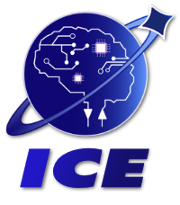-
Introduction to the 1st International Round Table
Introduction of the workshop, objectives, composition, structure, speakers. Keynote speech about the current ESA understanding of the state of the art and the needs for a more intelligent control in the upcoming complex space missions.
-
Neural Networks Control Systems
Neural Networks have been used to solve problems in almost all spheres of science and technology and could find application in control for space missions, autonomous mission planning and more in the future. This track will discuss the important topic of network training: these could be supervised learning, unsupervised learning and reinforcement learning. Those are three major learning paradigms each correspond to a particular learning task.
-
Bayesian Networks
Bayesian Networks are probabilistic graphical models that represents a set of random variables and their conditional dependencies via Directed Acyclic Graphs (DAG). Used in advanced control systems, a Bayesian network is a model for the variables of a system and their relationships and it can be used to answer probabilistic queries about a particular system. Bayesian Networks can be used to describe space systems controlled under uncertainties.
-
Fuzzy Logic Control
The term fuzzy logic was introduced with the 1965 proposal of fuzzy set theory by Lotfi Zadeh. Fuzzy Logic control is nowadays widely used in control of industrial processes. The IEEE Standards Association has written the 1855–2016 standard about a specification language named Fuzzy Markup Language (FML). This track will concentrate on the survey of control system using fuzzy logic and their applicability in space systems.
-
Experts Systems
Experts Systems are defined as computer systems that emulates the decision-making ability of a human expert. Hayes-Roth divides expert systems applications into 10 categories: Interpretation, Prediction, Diagnosis, Design, Planning, Monitoring, Debugging, Repair, Instruction, and Control. All those categories can be well applied to space mission control systems
-
Genetic and Evolutionary Computation
This topic will cover all families of algorithms for global optimization inspired by biological evolution, and the subfield of artificial intelligence and soft computing. In evolutionary computation, an initial set of candidate solutions is generated and iteratively updated. Each new generation is produced by stochastically removing less desired solutions, and introducing small random changes. Evolutionary programming was introduced by Lawrence J. Fogel. John Henry Holland called his method a Genetic Algorithm.
-
Intelligent Control for Transportation
The future of transportation holds high speed trains, autonomous large cruise ships, self-driving cars using more and more Intelligent Control (IC) for their systems. Therefore this track will address the design and development of Intelligent Agents (IA) compromising aeronautics industry and transportation industry e.g. automotive industry. An IA is defined as autonomous entity which observes through sensors, learns through knowledge, and acts upon an environment using actuators directing its activity towards achieving goals.
-
Intelligent Control for Manufacturing
The new frontier of the manufacturing industry has been called "Industry 4.0". This track focuses on the application of IC techniques on the manufacturing sciences and practices including the research, design and development of systems, processes, machines, tools, and equipment. This covers the survey and state of the art of autonomous and knowledge based systems for manufacturing.
-
Personal Assistants using Artificial Intelligence
A boom of intelligent personal assistance systems has been forecasted. The previous generation of personal device assistant (PDA) has now turn into Virtual Assistants. The use of virtual assistants via smart phones is expanding rapidly, with new products by phone manufacturing companies (Apple's Siri, Google Assistant, Amazon Alexa, Microsoft Cortana, etc). This track will bring the perspective of the use of Virtual Assistants to space control systems and in particular for the control of operations of complex missions.
-
Intelligent Control for Space
This is the main topic of the round table and comprises the use of artificial intelligence computing approaches to solve complex control problems in space missions. This track will focus on the investigation and the assessment of new, efficient, and cost effective methods for the control of space systems by means of Intelligent Control IC techniques and technologies.
Choose timezone
Your profile timezone:

